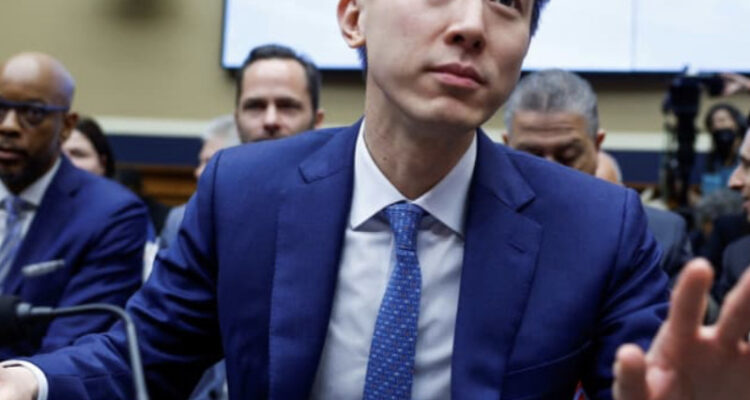If you’re someone who follows along with current events and politics like myself, you might find yourself upset at how Congress acted in their hearing with Shou Zi Chew, the CEO of TikTok.
I share a similar sentiment to a lot of members of my generation who are outraged as well. If you weren’t able to catch this hearing or keep up with the fallout, basically, a bill has been circulating in the U.S. Congress to ban the popular video app TikTok due to the danger that it possibly presents to users. But in the specific hearing, Congress threw all types of questions at Chew and seemingly did not do their homework completely.
Our elected officials are concerned that TikTok, run by a Chinese parent company called ByteDance, is taking a good amount of our personal information and feeding it to the Chinese Communist Party. Whether that is true or not is not my place to say; what I am concerned about, however, is the lack of care, research and attention that Congress showed ahead of this testimony.
Chew shared his company’s efforts to block out harmful content, make the app less addictive and to protect data of users so that no foreign influence is controlling the app.
Staring in the face of a complete ban of the app in the U.S., Chew was very composed and reassuring to a Congress that seemed almost fully united in their skepticism. But what I noticed, like many others, is that Congress seems out of touch with modern technology, and is making a problem out of something that could have been addressed in many other avenues since the dawn of social media.
The idea that TikTok is the problem seems pretty general. Representative Jeff Jackson of North Carolina’s 14th District is a Congressional newcomer as of this election cycle, but has been open and candid on social media about his thoughts.
In a Twitter post on March 27, he wrote that the “TikTok congressional hearing was brutal, but the issue is much broader than just one app.” He explains that this could also be an issue with all forms of social media, not just TikTok. I agree, and I think that even if there is a problem there, it is a bit late to make a problem out of it.
He seems to use the word “brutal” in reference to how out-of-touch older members of Congress appeared. According to a CNN article, Buddy Carter, a representative from Georgia’s First District, seemed staunchly convinced that TikTok tracked pupil dilation of children. What?
Another North Carolina congressman, Rep. Richard Hudson from the 9th District, asked if TikTok accesses his home WiFi network.
It is 2023, and they’re curious whether an app, like all others that require internet connectivity, can access our home internet. Are we serious?
Another big thing that comes to mind is Connecticut Senator Richard Blumenthal’s famous quote during the Facebook hearing, where he said “Will you commit to ending Finsta?” I’m not even going to try and explain this one, because I don’t get it either. The list goes on.
This is where I wish there was more Generation Z representation in Congress because the people in the seats governing our nation and passing legislation are so hypnotically uninformed about the changing times.
I don’t really care if TikTok gets banned, and if it is actually a security risk to our nation, then I suppose Congress will have been justified in its skepticism. I think personally, the moral of the story is that I care that the people making our laws actually know what they’re doing. We should have trust in the elected officials we choose, and we shouldn’t fear that congresspeople are too behind to make educated decisions on behalf of us, our safety and our well-being.


Leave a Reply